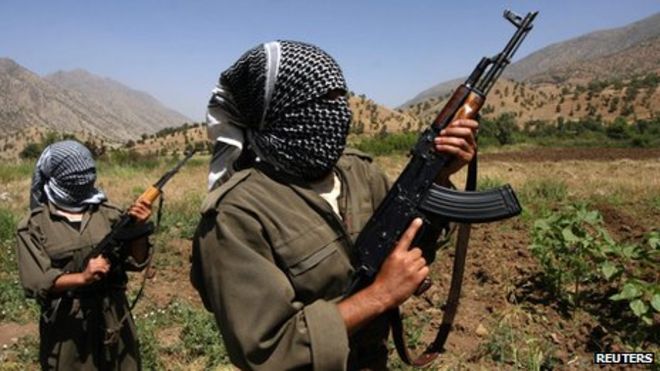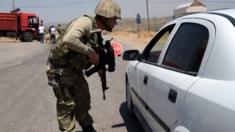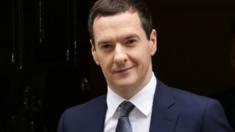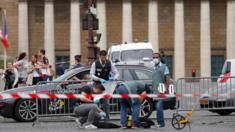Europe
Profile: Kurdistan Workers' Party (PKK)
- 2 hours ago
- Europe

The Kurdistan Workers' Party (PKK) has been a thorn in Turkey's side for decades.
The group, which has Marxist-Leninist roots, was formed in the late 1970s and launched an armed struggle against the Turkish government in 1984, calling for an independent Kurdish state within Turkey.
Since then, more than 40,000 people have died. During the conflict, which reached a peak in the mid-1990s, thousands of villages were destroyed in the largely Kurdish south-east and east of Turkey, and hundreds of thousands of Kurds fled to cities in other parts of the country.
In the 1990s, the organisation rolled back on its demands for an independent Kurdish state, calling instead for more autonomy for the Kurds.
It suffered a major blow in 1999 when its leader, Abdullah Ocalan, was arrested and jailed for treason.
In March 2013, he called a ceasefire and urged PKK forces to withdraw from Turkey, in an announcement he said was "historic". Correspondents said it was potentially an important step towards ending the conflict, but the real test would be in its implementation.
That ceasefire appeared to be over in July 2015 when Turkey launched air strikes against PKK camps in northern Iraq.
Escalating violence
Abdullah Ocalan's declaration was not the first time a truce had been declared.
Shortly after Ocalan's arrest, the PKK introduced a five-year unilateral ceasefire and took a number of steps to try to change its image and widen its appeal, changing its name several times before deciding it again wanted to be known as the PKK.
It also further watered down its demands, calling on Ankara to involve it in the country's political process, allow more cultural rights for the country's estimated 15 million Kurds and release imprisoned PKK members.
There were reports of splits within the organisation.
But Turkey, which, like a number of Western countries, regards the PKK as a terrorist organisation, refused to negotiate with it and offered only a limited amnesty to its members.
In 2004, the PKK resumed its violent campaign, which went on until secret peace talks were initiated in 2009 and the PKK declared a ceasefire.
The same year, the main Kurdish party, the Democratic Society Party, was banned by Turkey's constitutional court for its alleged links to the PKK.
Hundreds of Kurdish activists were prosecuted under the country's anti-terror laws - and continue to be prosecuted - and many were imprisoned.
Many of the activists jailed belong to the Kurdistan Communities Union (KCK), a Kurdish umbrella organisation which consists of both political and armed groups within the Kurdish movement, including the PKK.
Those trials were widely criticised by the Council of Europe and human rights groups including Amnesty International. They point to the vague definition of terrorism in the Anti-Terror Law used to make the arrests, extended pre-trial detention periods ranging from six months to a few years, and lack of credible evidence for the arrests.
Secret talks
Between 2009 and 2011, high-level secret talks took place between the PKK and the Turkish government in Oslo, Norway, but they collapsed after a clash between Turkish soldiers and the PKK in June 2011, in which 14 Turkish soldiers were killed.
Turkey blamed the deaths on the PKK, while the PKK said they were defending themselves against an attack by the Turkish army.
The PKK also says the talks failed because of the ongoing military operations against them by the Turkish military and the prosecution of hundreds of Kurdish activists since 2009.
After the talks failed, the conflict escalated rapidly, with some of the heaviest fighting seen in three decades. The PKK took its campaign to a new level by launching major attacks in urban areas of south-eastern Turkey as well as setting up checkpoints on roads.
Hundreds of Kurdish political prisoners went on hunger strike in October 2012 demanding better conditions for Ocalan and the right to use the Kurdish language in the justice and education system.
The hunger strike which lasted for 68 days ended after Ocalan urged them to stop, which showed he remained the most influential actor in the Kurdish movement.
On 31 December 2012, Turkish Prime Minister Recep Tayyip Erdogan announced peace negotiations were taking place with Ocalan in Imrali prison, where he is being held.
In February Ocalan called for prisoners to be released by both sides. The PKK freed eight Turkish soldiers and officials it had held captive in northern Iraq, where it has bases.
But the Syrian civil war - and the role of Kurds in combating Islamic State (IS) - again raised tension between Turkey and the PKK.
In July 2015, a suicide bombing blamed on IS killed 32 people in the mainly Kurdish town of Suruc, just inside Turkey's border from the war-torn Syrian town of Kobane.
Kurdish groups blamed the Turkish government for not doing enough to thwart IS operations and days after the bombing the PKK claimed responsibility for killing two policemen in the Kurdish majority city of Sanliurfa.
In a show of strength, Turkey launched air strikes against IS positions in Syria and against the PKK in Iraq.
In a statement, the PKK said the strikes spelled the end of the peace process.
Europe
Turkey air strikes 'changing game'
- 2 hours ago
- Europe
Osborne in Paris for EU reform talks
- 5 hours ago
- UK Politics
Police fire at car in Paris square
- 26 July 2015
- Europe









No comments:
Post a Comment
Please leave a comment-- or suggestions, particularly of topics and places you'd like to see covered